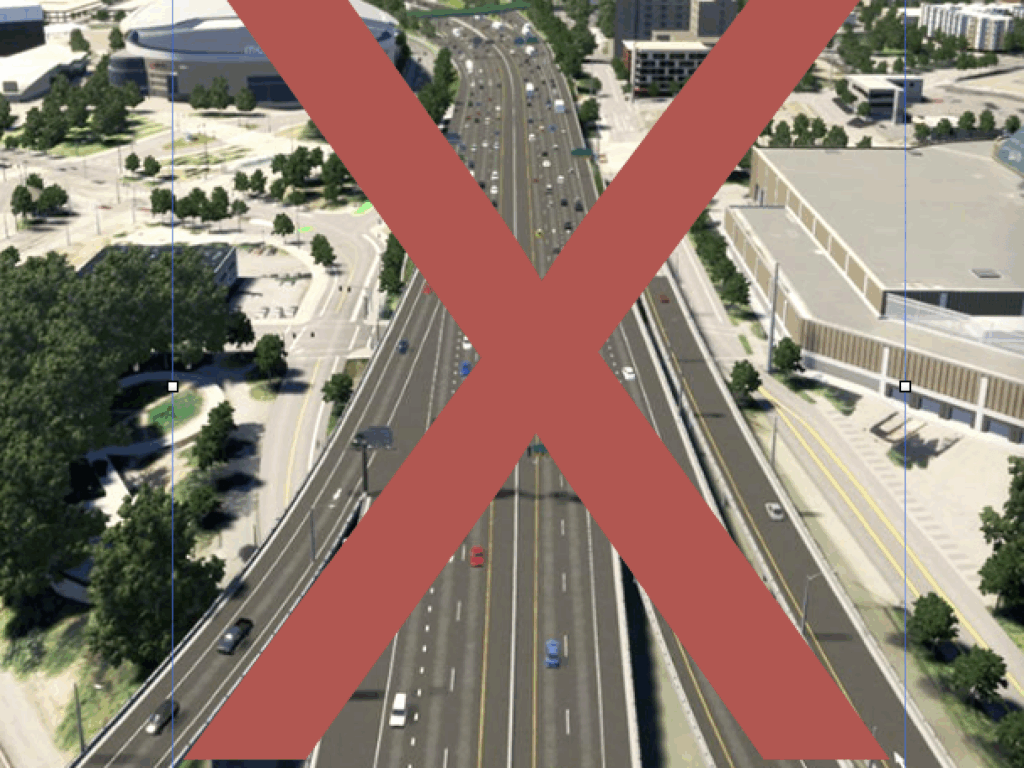What City Observatory did this week
Three big flaws in ODOT’s Highway Cost Allocation Study. Some of the most important policy decisions are buried deep in seemingly technocratic documents. Case-in-point: Oregon’s Highway Cost Allocation Study. The state’s truckers are using the latest report to claim that they’re being overcharged, but the real story is very different. We’ve unearthed three big flaws in the report:
- The imbalance between cars and trucks seems to stem largely from the Oregon Department of Transportation”s decision to slash maintenance and preservation, and spend more widening highways. ODOT could largely fix this “imbalance” by spending more fixing roads, and less on widening them.
- ODOT has illegally included federal funds in its cost allocation study; the state’s law and constitution apply only to state funds.
- ODOT has gone out of its way to scapegoat bike and pedestrian projects, which are mostly paid for with federal funds—that aren’t even properly included in the allocation study.
In addition, the highway cost allocation study leaves out huge social, environmental and fiscal costs that cars and trucks impose on society and on the state. In Oregon, like other states, cars and trucks are increasingly getting subsidized and not paying their own way, something you’ll never find out reading this report.
Must Read
California’s Freeway and Climate Collision: The LA Times has a terrific article summarizing a spate of freeway and climate news from the Golden State. The California Transportation Commission (CTC) just voted to approve I-15 Express Lanes that would add capacity to that freeway, mostly to handle truck traffic. The approval vote reversed a short-handed tie vote in December that temporarily put the project on hold.
The CTC voted to restrict even its commission members to just two minutes of comments, apparently in an effort to block Commissioner Joe Lyou from presenting detailed information showing the project violates state and federal environmental laws. Lyou’s slides show that state transportation officials argued both that the project would produce no additional truck traffic (exempting it from an air quality review) and that the project would generate 2 million more truck trips annually (to justify economic development funding). The CTC approved the project in spite of the clear contradiction. It’s symptomatic of a bigger problem in California–and elsewhere—state policies profess to commit to reduction pollution and greenhouse gases, but state officials routinely vote to widen highways. And there’s a coda to the I-15 debate, California’s Assembly Speaker replaced Lyou on the CTC with a new member: a former car dealer.
America Walks spearheaded a national sign-on letter calling for an end to highway expansion projects. Nearly 200 organizations (including City Observatory) have signed on to a new policy letter calling on the US Department of Transportation to stop funding highway expansion projects. The letter makes the case for a new direction:
We call on our leaders in government to adopt a moratorium on expanding highways and a pause on existing projects until climate, equity, and maintenance goals are met. The highway system we have built in our country is unsustainable, both financially and environmentally, and disproportionately harms low-income and Black and brown communities. We need to remedy these problems with a responsible approach to transportation that centers on community.
The policy stresses four-part priorities to guide transportation investments going forward: fix it first (prioritizing maintenance over expansion), safety over speed, make transit work and re-connect communities (by removing freeways or replacing them with boulevards).
US DOT rejects grant request to rebuild the Brooklyn Queens Expressway. A hopeful sign this week from the US Transportation Deaprtment: they rejected a request for $1 billion in federal funds to hep rebuild the Brooklyn Queens Expressway, a classic Robert Moses project that blights Brooklyn, cutting it off from its waterfront.
In the News
Strong Towns tells a national audience about Portland’s freeway fight over the proposed $1.9 billion I-5 Rose Quarter project, a mile and a half long freeway widening being packaged as a community revitalization effort.
Bike Portland has an in-depth interview with City Observatory’s Joe Cortirght exploring the problems with the arcane cost allocation study the state uses to judge the fairness of highway taxes.


